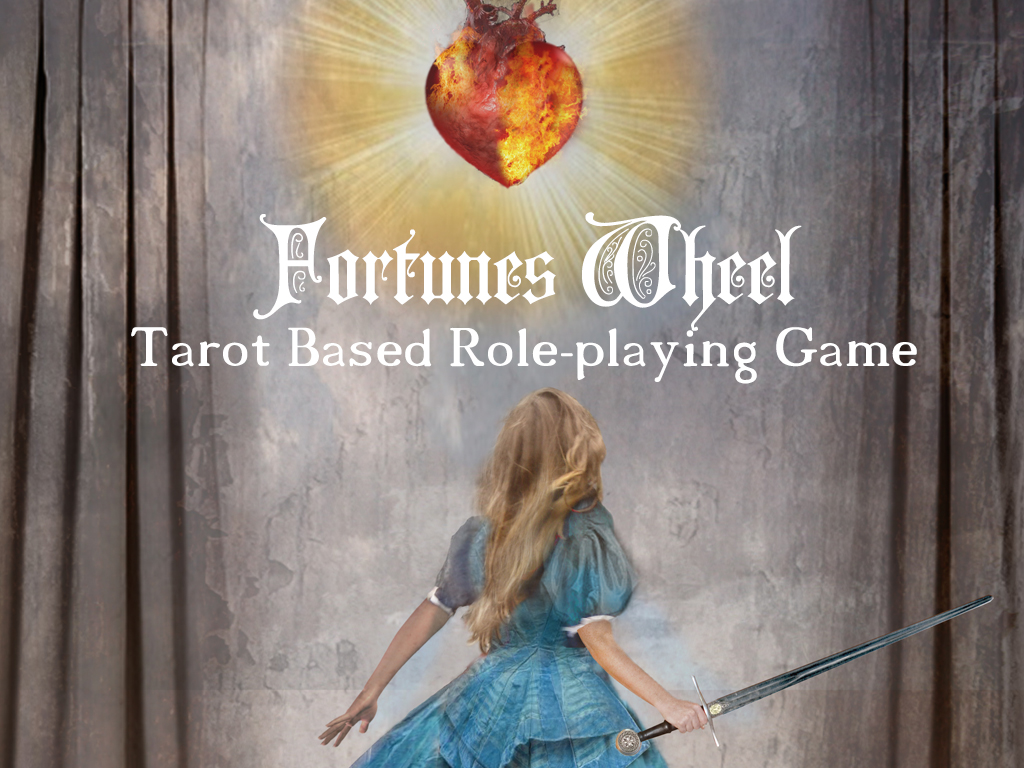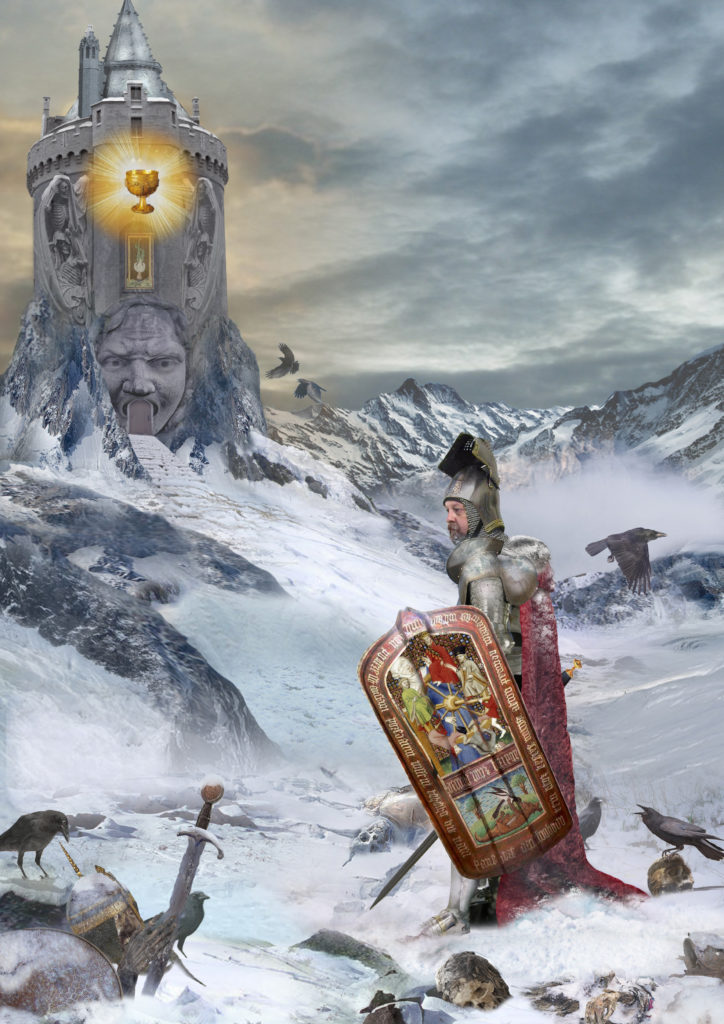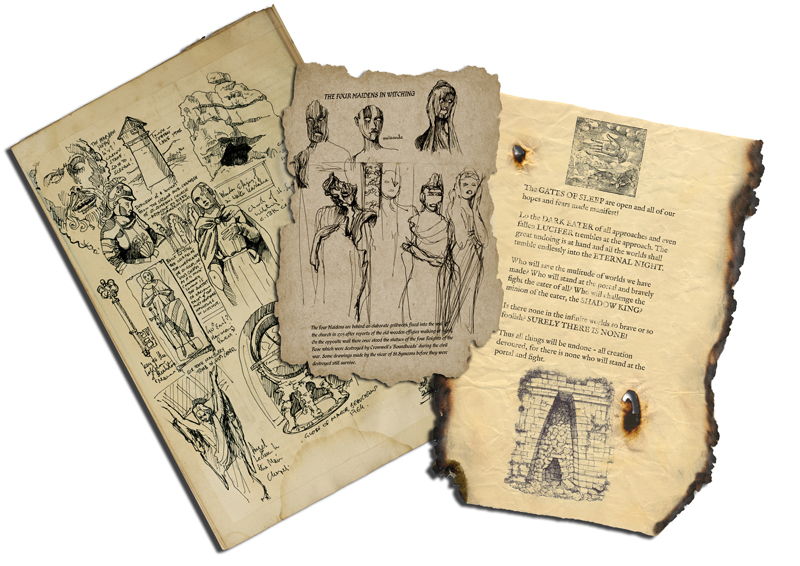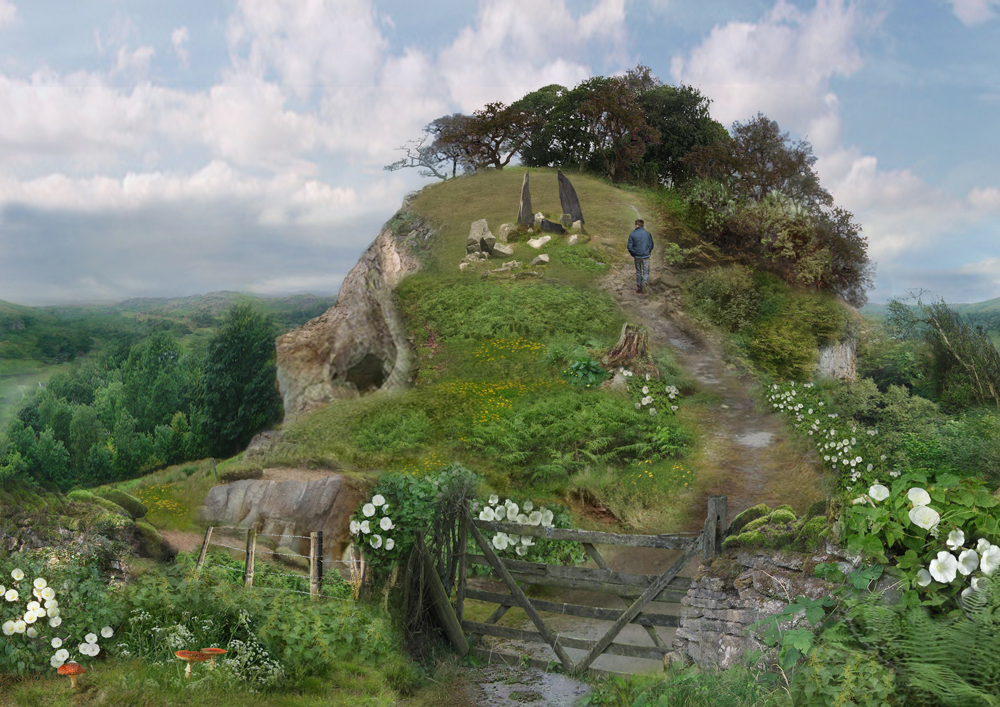
17 Oct An Interview With The Designer of “Fortune’s Wheel” Indie RPG
I recently got the opportunity to interview Peter Hollinghurst, an Indie Designer with a new tarot-based RPG that is now on Kickstarter. Here’s what he said about his experiences in creating this cool game!
~Oliver
What is “Fortune’s Wheel” about, in a nutshell?
Fortune’s Wheel is actually two things – a game system and a setting.
The system is a Tarot based tabletop rpg that can be played like a traditional rpg, or with various indie game styles such as GMless, improvised and even solo play.
The setting ties in with the Tarot and the figures on the cards can have a very real presence in the game. It also ties into various myths and legends and features an ongoing mystery involving conspiracies, secret societies, fallen angels, faeries, Arthurian legend and a sinister enemy called Nemesis who is threatening the fabric of reality.
Binding it all together is a place called the Erebus – it’s the source of the creative energy that makes up all things and some of those secret societies tapped into it using the Tarot as a magical creative focus and discovered they can create and explore their own worlds within it. Following a mysterious legacy the players gain access to this power as well, and in doing so find they need to try and stop Nemesis.
The game can take the players anywhere – into worlds invented for the game or ones from popular fiction because anything we can imagine exists in the Erebus somewhere. It picks up on our dreams and our subconscious and creates things without our knowing it. Sometimes the things it creates haunt us as ghosts and monsters, breaking into our reality through tears in the boundary between our world and the Erebus. The biggest of these tears is a place called Witching – and it is so dangerous it has been sealed off from the rest of our world in a fold in time and space for centuries. The secret orders who use the tarot are based in that fold because they can access the creative energy and bend it to their will, but it’s starting to break down and the fold is threatening to collapse and suck our world into it.
 Could you explain how the tarot cards work (unless you’ve already explained them above)?
Could you explain how the tarot cards work (unless you’ve already explained them above)?
Some people will say it’s down to psychic powers and occult forces, and maybe it is, but personally I think it is just because we are really really good at finding patterns, and when we can’t find them, making them. It’s like seeing creatures in clouds, or faces in a landscape – we interpret what we see and force them into recognisable patterns that make sense to us. We are all hard-wired to do this – to make or force meaning by connecting things together as patterns even if they are not there. The results can be very powerful in much the same way that a conspiracy theory can be powerful – they capture our imagination and we think things are making sense when actually they are not really connected at all.
With the cards in Fortunes Wheel players have a set of tools for creating story patterns – people have written books about how the Tarot can fit in with the mythic ‘Journey of the Hero’ which is a plot structure often used by writers, especially in Hollywood. So for Fortunes Wheel this pattern making skill we all have can become a story making one. We can use associations with images to start to create things. We make those ‘conspiracy theory’ style connections with them.
We are very used to thinking of the Tarot and divination – but it started out as a card game. The images on the cards reflected the cultural world of the renaissance and its a world we have inherited so the images are still deeply meaningful for us. When people started to use the cards for divination I think they tapped into that cultural richness, and really what I am doing in Fortunes Wheel is (appropriately) bringing it full circle like a turn of that wheel back to a game.
What was it that inspired you to create an RPG?
I have actually been creating them since my teens, I did one for my design A level at school called ‘Puritans and Privateers’ that was rather obviously inspired by Dungeons and Dragons. This is the first one I have felt has something to bring that I don’t feel existing games already give us though.
It originally started out as a Pirate game using coins instead of dice, but I was doing a lot of reading about the Tarot at the time and it felt like something better to use. As I experimented with it I found I was constantly being surprised by how effective the cards were at adding an extra dimension to everything in ways a simple success or failure mechanism can’t really do. Every task resolution suddenly had a rich layer of meaning added to it that opened up all sorts of story possibilities.
It coincided with a time when I could not get to a game group very often, so I started to use it to play solo as I tested the system out. It also gave us something that when we did get to play as a group did not have to involve a lot of preparation, we could improvise games instead. I found it was becoming about fitting it in with changes in my life style because they were causing problems for regular gaming.
What have your challenges been so far, and how have you dealt with them?
The game development has been fragmented by a series of family crisis and it’s actually taken me 14 years because of that to get to the point I am at now. I had spent a lot of time posting in the Forge, an Indie game design community, only to find the community folded and with it a lot of my contacts. It’s been a process full of ups and downs – things you just can’t easily anticipate. That’s oddly appropriate for a game featuring the Wheel of Fortune and the fickleness of luck.
Since this is my first Kickstarter it has been a steep learning curve and I am having to find out how to respond to things as they come. I don’t think any amount of preparation can really prepare you for it completely, though it’s a big help. Unforeseen issues and small mistakes can have a big impact – I think the best thing is to be upfront in dealing with problems and to be attentive to backers comments and to peoples’ questions. The backers I have had so far have been brilliant – really helpful. Showing backers that you are listening to them and responsive to issues makes a big difference. It also helps to get advice from people who have already done a Kickstarter (looking at Oliver) because other peoples’ experience can help a lot.
Fortune’s Wheel is not really a mainstream game so I am finding I am having to do a lot of work bringing it to the attention of people who are most likely to be interested in it – I joined a solo rpg community after being asked some really good questions by a member so I could address my replies to the group, Lone Wolf Roleplaying on Google+ . They are a fantastic community of people who are deeply invested in an unusual and fascinating side of the hobby. It was challenging but also incredibly exciting and I really hope they will get a lot out of the game. I have learned a lot from them already and want to keep on being active there.
Do you have any advice for first-time Indie designers?
We are a small husband and wife development team. I do the game creation my wife, Suzette, does the DTP side of things, and we both do artwork. Normally you get other people to do some of those but we have been trying to do it all ourselves and it’s all too easy to get caught up in being busy. That is when you can overlook something important. It’s helpful to take a pause and a step back and check and double check things.
Listen to people (I need to listen to my wife more often because she frequently spots possible problems than I miss). Don’t be so busy that you get distracted from taking good advice when it’s offered, ask lots of questions and make lots of contacts well in advance – especially ones that you are genuinely excited about.
 Here’s a fun one! What’s your favourite RPG and why (not including your own)?
Here’s a fun one! What’s your favourite RPG and why (not including your own)?
Definitely Call of Cthulhu. I love GMing it because I get the chance to try and terrify the players. Plus I adore Lovecraft. My GMing style also owes a debt to M.R. James who I think is by far the best writer of ghost stories. Back when we first started playing I lived by some woods and several of the players would take the footpath through it home at night – but never after playing because they found it too scary. For me that was a sign of a GM’s job well done!
I think the Basic Roleplaying system it uses is still the most elegant and functional one there is. If you are going to use dice d100 just makes sense to me. It’s easy for new players to get the hang of as well. People played Cthulhu in my game group who would never normally have got into gaming because it is so accessible and easy to relate to.
Check out Fortune’s Wheel on Kickstarter here.


No Comments